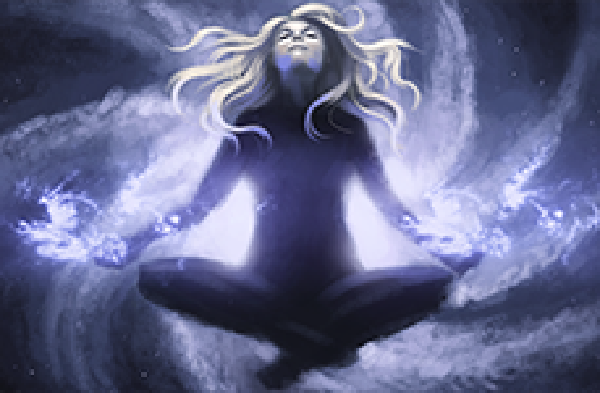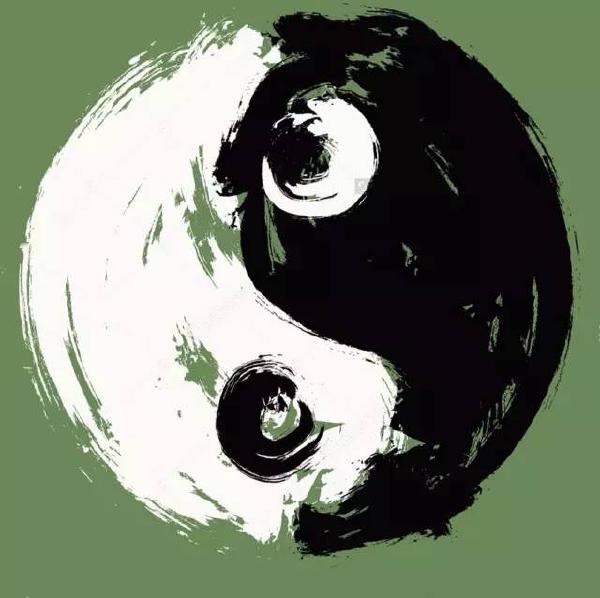One inevitably traces back to questions about the world’s origins, and answering these questions is the process of establishing one’s cornerstone principles.
Perhaps because I recently resolved a psychological issue that had troubled me for nearly two years, combined with continuous learning and accumulation over the past year, it feels like breaking through a paper window. Suddenly, many things interconnected and became clear. My life philosophy, worldview, and values, after multiple revisions and reconstructions, modifications and improvements, have finally crystallized into a fixed form at this moment. Fortunately, this happens at the peak of my learning ability, during the golden period of rapid knowledge and insight accumulation. Through studying and researching philosophy, mathematics, and physics, I’ve decided to build the core of my soul upon these three disciplines. They will become my foundational guiding principles. Future changes will be expansions or elevations upon this foundation. Thus, my long-fluctuating three outlooks finally declare their finalization.
I believe this moment marks what I can finally call basic maturity. So I’m taking some time to write this article, recording my current feelings for future critical examination.
First, my understanding of maturity is:
- Clear about one’s mission and responsibilities (What should I do?)
- Clear about one’s abilities and limitations (What could I do?)
- Clear about one’s ideals and beliefs (What would I do?)
- Establishing positive life philosophy, values, and worldview (Guidance)
Through countless moments of leisure contemplation, I can finally give complete answers to these questions. Finally, I can categorize, abstract, summarize, and compress the multitude of knowledge and experiences. Condensing them into life’s principles, settling them as my ideals, evolving them into my methods, guiding my behavior.
1. Life Philosophy#
What is life’s value? This is one of philosophy’s most enduring questions, and everyone can give their own answer. Undoubtedly, I believe happiness is life’s greatest value. Humans are self-interested beings—I agree with this view, but need to expand the concept of “interest” to “happiness,” thus unifying spiritual emotions with material interests. Everyone is “directing” their behavior under the goal of maximizing their own happiness. Actively choosing pain is for future happiness. What distinguishes civilized people from barbarians is their willingness to endure present pain for future happiness. Furthermore, religious faith persuades people to endure worldly suffering for otherworldly happiness. Regardless, pursuing happiness is the ultimate purpose and final value of all human behavior. This point is self-evident and needs no proof.
What is life’s meaning? Answer: Life’s meaning is completing one’s mission. Mission can be understood narrowly as responsibility. Civilization’s torch has been passed since humanity’s birth. As members of the human species, each of us has a mission to receive this torch from predecessors and pass it to successors. If this torch burns more brilliantly in my hands, I fulfill my human mission, contributing my small part to civilization’s order. Other so-called responsibilities to family, society, and country are similar. The life value mentioned above—pursuing happiness—isn’t this also a responsibility to oneself? Without responsibility, one cannot become a true person. Without mission, just living to eat, how does one differ from beasts? A person’s greatness lies in having a great mission and implementing it in practice. Life’s value can only truly be realized when one’s mission is accomplished. Reproduction is the mission our species assigns us; pursuing happiness or self-actualization is the mission we assign ourselves; bearing social and family responsibilities are missions society and family assign us. Some missions we must accept, while others we can choose ourselves.
Though these concepts about life’s meaning and value should be universal, there are many different ways to pursue life’s meaning and realize life’s value. Pursuing happiness can be understood as pursuing enjoyment—both material and spiritual. One physical, one mental. This necessarily involves value judgments, and I don’t wish to judge whether others’ chosen lives have more value. My view is that spiritual enjoyment brings greater pleasure than material enjoyment. Of course, I’m not criticizing material enjoyment—after all, I’m not an ascetic. But as a result of environmental influence, this view has taken root in my mind. Therefore, I define my mission as following humanity’s quest for knowledge, pursuing knowledge, wisdom, and truth. Experiencing as much as possible of humanity’s magnificent spiritual world: science, art, morality, truth, faith. Simultaneously experiencing spiritual nobility and soul elevation through learning and research is undoubtedly an extremely intoxicating enjoyment. Among all literary works I’ve read, the character image most deeply imprinted in my mind is Goethe’s Faust. I’ve always hoped to experience such a life—pursuing knowledge, love, art, politics, even social ideals. This creates another problem. The greatest contradiction in human understanding of the world is between our fleeting existence and the universe’s infinity. It’s destined that even exhausting a lifetime, what I can grasp is merely a drop in humanity’s ocean of knowledge. Therefore, I establish my life creed as: Experience More, discover a larger world. In fleeting life, experience more excitement. In brief existence, even if I cannot carve my mark in history’s river, I should at least continuously enrich my knowledge and insights, deepen my understanding of the world, until forming independent consciousness and summarizing life’s insights—this would not waste this life.
2. Values#
Speaking of values, this is truly a troubling issue. Values are a person’s highest behavioral principles. From another perspective, faith and culture are essentially collections of values. Value conflicts are the root of most worldly disputes. So following the principle of making fewer value judgments, I can only briefly discuss broad, general values.
From personal values: I believe evaluating things’ quality has three angles—“truth,” “goodness,” “beauty”. The basis for evaluating things also has three aspects: “law,” “reason,” “emotion”. These standards are indeed too broad—each word could fill several library shelves with explanatory books. But indeed, all things in life can be categorized within these six characters. Different people simply prioritize them differently, with earlier positions indicating greater importance.
From faith perspective: Faith is an extremely important part of values. I believe in morality and science, in truth and love. Abstracting further with one word: “order.” I believe in order, or alternatively, believe in the dialectical unity of order and chaos—yin-yang theory, dialectical thinking. I believe order exists within all things in the universe. Whether in nature or human society, all should move eternally according to certain laws. As the saying goes, “heaven’s movement is constant”—everything has its internal movement patterns. Kant said two things can most shock the human soul: the vast starry sky above us and the noble moral principles within our hearts. These two things are internally unified—both are order’s manifestation in different domains. Additionally, understanding order as rigid rule-following is narrow. Such situations are rare in natural science research, but often in real life, many rules are actually disordered. Facing such situations, I weigh between my own entropy change and external system entropy change, sometimes appearing as a rule-breaker instead.
Order, order—both “秩” (arrangement) and “序” (sequence) mean ordering. Sequential relationships are the most fundamental among mathematics’ three basic relationships. Mathematics’ foundation is set theory and logic, then from sequential relationships, operational relationships, and mapping relationships, the entire flourishing mathematical and natural science edifice develops. This echoes “one generates two, two generates three, three generates all things.” From believing in order, one naturally concludes belief in rationality and logic. These are merely specific manifestations of order.
Finally, from cultural perspective: As a Chinese person, the scientific part of my values contradicts Chinese traditional culture. It’s quite regrettable—ancient China had extremely profound philosophical thought and exquisite engineering techniques but didn’t birth scientific spirit, which is truly lamentable. This indeed requires learning from the West, catching up on missed lessons. Of course, not including other baggage.
3. Worldview#
What else can be said? As a firm materialist, I naturally hold a materialist worldview.
The world is the largest autonomous dynamic system composed of matter, energy, and information triads, moving eternally under the law of unity of opposites. Elementary particles and fundamental forces combine and evolve at different levels under quantitative-qualitative change laws and similarity laws, displaying rich and colorful changes at different scales. The world’s, or universe’s, basic contradiction is between motion and rest, and this dynamic system’s most essential characteristic is causality.
- Looking slightly smaller: The entire human society, human world. The basic contradiction in human world development is “the contradiction between humanity’s infinite desires and finite resources.” Or alternatively, “the contradiction between information’s reproducibility and resources’ irreproducibility.”
- Looking even smaller: Human society evolution’s basic contradiction is “the contradiction between backward productive forces and growing needs.”
- The basic contradiction in human emotional world is “the contradiction between independence as individuals and seeking interconnection as social animals.”
- The fundamental contradiction underlying human political world’s power constraint problems is “the contradiction of a set’s whole belonging to a set member.”
And so forth. Perhaps these expressions aren’t very rigorous. But I think unity of opposites as the fundamental cause of things’ development is correct in general direction. Opposition generates motivation, unity produces progress. Our civilization develops and advances in such cycles, becoming a low-entropy sanctuary in the universe.
Philosophy is systematized worldview—this is dialectical materialism’s worldview.
4. Methodology#
The old saying goes: what kind of worldview determines what kind of methodology. I think this is correct. But not just worldview—all three outlooks together determine methodology.
But I don’t want to write much here—it’s really not very meaningful.
Because during undergraduate studies, no matter how clever my methods, I often cannot escape predecessors’ constraints. This is quite interesting—proposing an idea, making an answer, then discovering upon reading that ancestors had already discussed these problems. When it matches my thinking, I feel “great minds think alike”; when different, I can find my errors from predecessors’ brilliant answers—also delightful.
Now I have this feeling: the ability to raise questions, or define problems, is far more valuable than the ability to solve problems. For most problems, solutions can always be found. But finding deep, thought-worthy problems isn’t so easy. Problems are gaps between ideals and reality, contradictions between expectations and reality. Experience resolving such contradictions is humanity’s most basic knowledge form. Opposition between ideals and reality generates motivation, while balance and unity between ideals and reality represents knowledge progress. Finding one thought-worthy problem daily, thinking independently, comparing results with predecessors’—this is a very interesting learning experience.
Descartes said: The most valuable knowledge is knowledge about method. I deeply agree—mastering learning methods makes efficiency doubling incredibly easy. University’s greatest gift is learning ability, which I extremely hope to improve. I don’t know when learning became such an easy thing—one reading achieves rough understanding, and time invested always brings proportional returns. This experience is excellent, saving me lots of time to invest in methodology study. I still have considerable leisure time for listening to music, playing piano, running, reading books—all very rewarding. I used to envy people constantly in labs; now I don’t. With clear goals and pursuits, professional skill development becomes less attractive. Now methodological knowledge is the most precious knowledge. Current life is truly exciting and fulfilling.
Epilogue:#
When I discovered these problems were all figured out, suddenly all previous melancholy and frustration swept away, replaced by unprecedented optimism and enthusiasm filling my consciousness: this world has so much excitement waiting for me to experience and explore—how can I merely live within the known? Only learning, accumulating knowledge and insights, is the most effective path to changing oneself. Meanwhile, knowledge itself is learning’s best reward. After understanding my pursuits, an inside-out transformation began. The entire world, in my eyes, is so bright and colorful, the whole world seems to smile at me. I need no motivational success theories—I myself am positive energy, providing infinite vitality for my life. This is an extremely pleasant experience—trapped in a personal world for so long, breaking out of the cocoon, escaping inferiority’s shackles. Now I can stride forward with head held high, face learning with full passion, persist in exercising on the track. I can naturally greet strangers, abandon perfectionist demands, calmly accept my limitations, and most importantly, face life with optimistic and open-minded attitudes. Every day brings new insights, new gains, new changes, each day incredibly fulfilling. Looking back one week always reveals previous naivety. This feeling of fulfillment and freedom is so refreshing! I hope this optimistic and positive life attitude will accompany my remaining life. I write this for self-encouragement.




